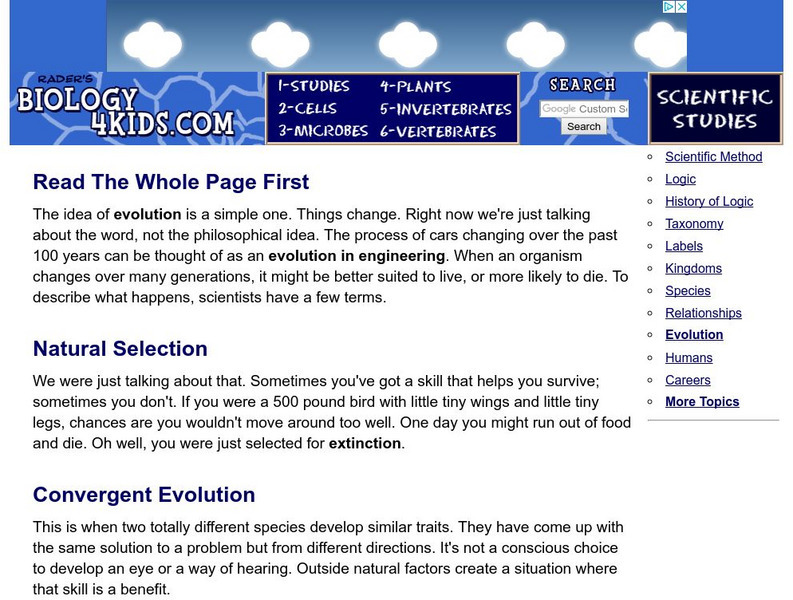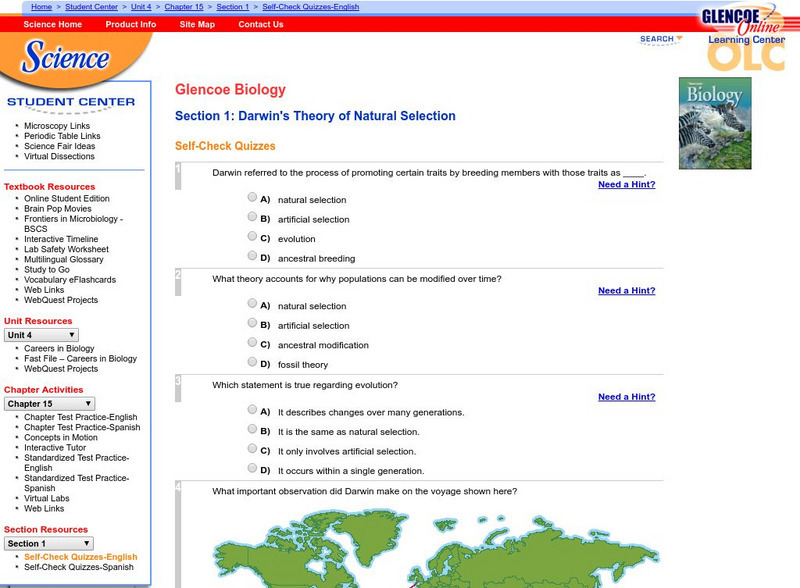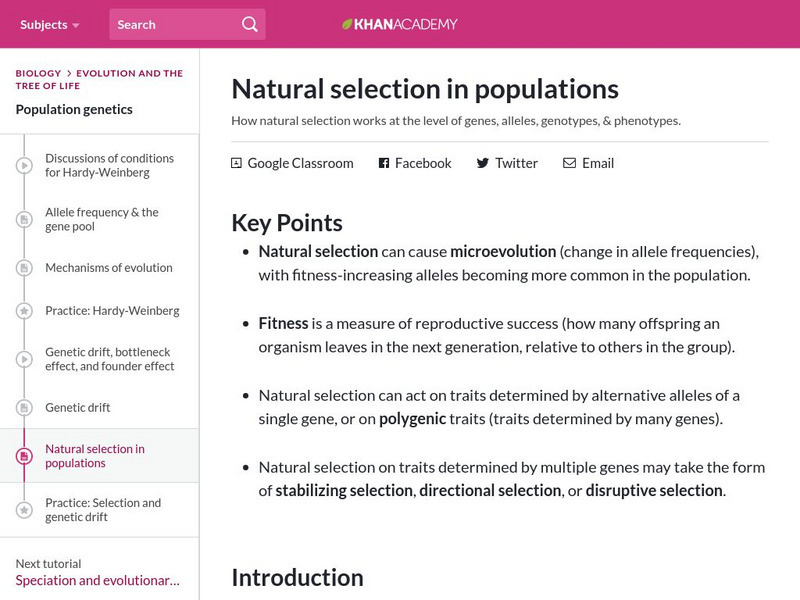Hi, what do you want to do?
Vision Learning
Visionlearning: Biology: Galapagos Finches
Interactive animation illustrates how Charles Darwin used his study of finch beaks to explain evolution. A phylogenetic tree diagram shows how the birds' color and beak shape changed over generations.
University of Arizona
The Biology Project: Genetic Drift: An Explanation
This explanation of genetic drift is straightforward and easy to understand. Illustrations are provided to help visual learners
PBS
Pbs Learning Media: Allopatric Speciation
These images from the Smithsonian Institution depict Nancy Knowlton's work with snapping shrimp in Panama. Knowlton found that the closing of the isthmus -- dividing the Pacific Ocean from the Caribbean -- resulted in new species of shrimp.
Biology 4 kids
Biology4 Kids: Evolution
Read a brief, but clear description of the three evolutionary processes that occur in species over time.
University of California
Understanding Evolution: Mechanisms: The Processes of Evolution
Examine the six major mechanisms of evolution and evolutionary processes.
McGraw Hill
Glencoe Biology: Darwin's of Natural Selection: Self Check Quiz
Try these five multiple-choice quiz questions about Charles Darwin's Theory of Natural Selection.
Khan Academy
Khan Academy: Natural Selection in Populations
How natural selection works at the level of genes, alleles, genotypes, & phenotypes.
CK-12 Foundation
Ck 12: Life Science: Natural Selection
[Free Registration/Login may be required to access all resource tools.] The theory of evolution by natural selection means that the inherited traits of a population change over time. Inherited traits are features that are passed from one...
Treehut
Suzy's World: Life on Earth
This site from Suzy's World, which is a personal site from Suzy Cato, explores what evolution is, and how long there has been life on earth. Content includes fun facts, a great experiment, and a classroom activity.
CK-12 Foundation
Ck 12: Biology: Macroevolution
[Free Registration/Login may be required to access all resource tools.] Constrasts gradualism and punctuated equilibrium.













